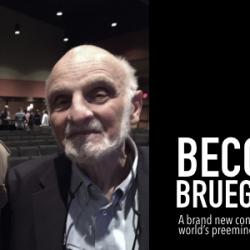Shrink is my third book, so I’ve been through the review process a few times. I know what the author is supposed to say in response to a critical review. “I enjoy the give and take. The dialogue is helpful. This conversation is why I wrote the book.” Usually I can bring myself to say my lines and actually mean them. However, a recent review is so careless I couldn’t pull it off. That’s a first for me.
The review appears on the 9Marks website, and is written by Shawn Merithew, senior pastor of Morningview Baptist Church in Montgomery, Alabama. He writes,
“As a young man, I was privileged to have a friend whose hobby was building and flying remote-controlled model airplanes… I shared his sense of exhilaration at seeing his creations rumble to life, take to the air, perform marvelous feats of aerial acrobatics, and return safely to earth. I had a similar feeling as I began reading Tim Suttle’s book Shrink. As his thesis rumbled to life and his diagnosis of the church lifted off the ground, I had high hopes for the marvelous truths he would bring forth. But shortly into the first theological turn, the propeller broke off and the entire project slammed into the ground in a ball of fire.”
Interesting. Charitable. And to think I had to find out online.
One of the issues I take on in Shrink is the American obsession with pragmatism: the assumption that if one’s methodology works, it must be right. When pragmatism finds its way into church leadership, we run the risk of engendering practices that are opposed to the gospel, while they appear to be successful according to the metrics of the culture.
Another group that has been talking about this problem is the Neo-Reformed* camp, including the predominantly Baptist contingency that 9Marks seems to represent. When I heard that someone had reviewed Shrink for 9Marks I was hopeful the reviewer might understand the impulse behind the book, and recognize in Shrink a corresponding desire for the church to remain faithful to the gospel instead of accommodating itself to the pragmatism of the culture. Although I always anticipate differences in theological approach, I thought Shrink would find a fair-minded reading. I was wrong.
Merithew reads Shrink with a doctrinal checklist in hand, a theological grid replete with names of black listed theologians like N.T. Wright and Scot McKnight. As long as Shrink was able to tick his boxes, Merithew was reading. At the mention of Wright and McKnight, however, Merithew stopped engaging the book on its own terms.
When a reader comes to a book with a tightly constructed theological rubric in hand, they have several choices. A reader who is open to expanding the margins of their thinking can allow the book to challenge their assumptions in healthy ways. A reader can also engage the argument critically, questioning the author’s assumptions and conclusions, assessing internal coherency, rhetoric, and style, while offering concrete reasons for disagreement and agreement. Or, the reader can reject the author’s work the moment it deviates from the reader’s script, and then lob hand grenades.
Merithew has chosen the latter option. That he has so chosen is made obvious by the fact that he misappropriates the role Wright and McKnight play in the book. He wrote:
“The ecclesiology that Suttle espouses is derived from the writings of New Perspective and Emergent Church personalities like N.T. Wright and Scot McKnight, respectively.”
Merithew is using an actual logical fallacy, a specific derivative of ad hominem called the association fallacy, or “guilt by association.” By throwing out phrases like “New Perspective,” “Emergent Church,” and names like N.T. Wright and Scot McKnight, Merithew hopes to discredit my work with a certain demographic.
In truth, the ecclesiology at work in Shrink is not dependent upon New Perspective exegesis; and I’m sorry, but calling N.T. Wright an “Emergent Church personality” is like calling Bubba Watson a “Putt-Putt personality.” Wright is arguably the greatest biblical scholar of our time, not some break-out session host for Catalyst. A deep appreciation for N.T. Wright and Scot McKnight is hardly reason for dismissal, unless you can answer their theological claims (a challenge that, to date, no scholar from the Neo-Reformed or Baptist camp has been able to meet).
To make matters worse, Merithew also critiques me for not being Jesus-y enough.
“Though Suttle makes use of some biblical stories, what is noticeably absent in these chapters is any significant mention of the person and redemptive work of Christ and any reference to sin and salvation. He imparts numerous reflections from Christian authors, liberal theologians, and secular texts; he shares personal anecdotes and gives grand exhortations to be virtuous. But after almost every page, I found myself asking, “Where is Christ? It is love for him, not love of the world, that is the biblical motive for obedience and true Christian virtue”
This critique irritates more for its immaturity than its substance. It’s middle school church camp with rival youth groups yelling, “We’ve got Jesus! Yes we do! We’ve got Jesus! How about you?” To engage on this level is to debase and humiliate oneself… so let me just get started:
Merithew says that I merely “make use of some biblical stories.” First of all I don’t make use of the bible; the bible makes use of me. The bible sets the terms, and my life, my writing bends to scripture. Secondly, Merithew’s dramatic question, “Where is Christ?” is misleading. The name Jesus appears 270 times in the book, Christ 263 times, and gospel 112 times. The book only has 230 pages for heaven’s sake. It seems like a legitimate ratio to me. See what I mean? Humiliating.
The Lordship of Christ is the major preoccupation of Shrink. The gospel is front and center throughout. As I say in Chapter Four, “To lose the heart of the gospel is to lose the heart of our Christian identity,” (p.91). Jesus taught us that love of God is inseparable from love of neighbor. That God so loved the world is the impetus for incarnation. His followers love the world as Jesus did because the love of God is alive in our own hearts causing us to “become caught up in the love of God and become transformed into the kind of people who go out into the world and image God to all creation because we’re image-bearing people.” (p.86)
If Merithew had accurately represented my views on ecclesiology, he would have noted:
1.
In Shrink, the first step in building an ecclesiology involves a three-page exploration of the biblical use of the word ekklēsia, and the metaphors of “body” and “temple” in the writings of Paul. The foundational ecclesiological paradigm is rooted in scripture. “This is where we start. The church is a visible assembly [ekklēsia] expressing the lordship of Jesus in their common life. The church is the body of Christ, and it is the holy temple.” (p.84) If one wishes to argue about the semantic field involved in ekklēsia, or biblical metaphors for church, I’m in. But one cannot legitimately claim the ecclesiology in Shrink is not biblical.
2.
The second step involves assessing the telos of the church—the end toward which the church is focused. I make two moves in this section:
Breathing in:
I center the life of the church in the faithful worship of Christ – the glorification and enjoyment of God, through Christ, in the power of the Holy Spirit. As we are breathed into God’s lungs each week, we submit ourselves to Christ and to each other in the confession of sin, and the observance of word and sacrament.
“The church bands together; we give ourselves to the Story of God [scripture and gospel] and begin to organize our common life together in such a way that we can be faithful to that story. In my community we call it discipleship. Whatever you want to call it, it is the process through which God draws the church into his lungs and shapes us and forms us, enriches us and prunes us. This process is thoroughly corporate and yet always personal… And if we participate in this breathing, an amazing thing happens in a church. The Bible calls it redemption.” (p.86)
Breathing out:
We are sent forth to bear witness to the Lordship of Jesus in the way that we live our lives.
“Then God exhales. He blows us out of his lungs and into the world. As little transformed agents of redemption, we are sent out into the places we always go—our homes, our schools, our work- places, our neighborhoods, our families, and so on. We go there as salt and light. We go there as people who do not walk by sight but by faith. We are transformed vessels of God’s redemption sent to season all of creation. We image God.” (p.86)
The church is dependent upon God to draw us in and breathe us out. We are not self-sustaining, nor can we determine our own effectiveness. We are completely dependent upon cross, resurrection, and the ongoing presence of Christ with his people. The church does not need to engineer results or success. The church must simply be faithful to Christ.
Except for the introductory paragraph’s mention of the phrase, “putting the world to rights,” Wright or McKnight do not heavily influence the section on ecclesiology. The major influence is obvious. The section is titled “For the Life of the World” after the title of Orthodox theologian Alexander Schmemann’s great ecclesiological work. A careful reader would also have discerned the foundational influence of Dietrich Bonhoeffer and the Confessing Church, as well as Hauerwas and Willimon’s Resident Aliens.
What Merithew was really reacting to was the use of N.T. Wright and McKnight’s work in the section titled, “What Vanishing Cultures Do,” in which I’m critical of those who subsume ecclesiology into soteriology. It’s a question of how we understand the word gospel, which has implications in terms of whether we finally focus on ecclesiology, or on church models: Does gospel mean conversion of individual souls? Or does it mean redemption of all things through Christ, beginning with the conversion of individual souls? Here I do commend you to Wright and McKnight’s work (How God Became King, and King Jesus Gospel). I’ve copied more of the section from which Merithew quoted:
“Both Wright and McKnight stress the reality that the New Testament is devoted to a gospel characterized by the story of Jesus—his life, teaching, death, resurrection, and ascension. This gospel is about the climax and fulfillment of the story of Israel in and through Jesus Christ, who is Israel’s Messiah, the Son of God, and the world’s true Lord. This gospel is not merely concerned with personal conversion, but with how Jesus became King and how he is redeeming all things starting with those who follow him and call him Lord.
Most importantly, the gospel Wright and McKnight recommend is not concerned primarily with the perpetuation of evangelical culture but with the holistic stewardship of all of life, the land, the people, the animals, the environment, and the world in which we live. Their work stands in stark contrast to the typical evangelical pursuit, too often fixated on a soterian gospel derived not from the Scriptures but from evangelical culture itself… any robust ecclesiology must include a full-bodied soteriology. Part of why we are so enamored with models that produce predictable growth is that we have been shaped by a soterian gospel. Evangelicals have been convinced that they exist for the salvation of individual people but not for the life of the world. That portrays an incomplete soteriology and a distortion of the gospel.” (Shrink, 93).
Even if I were to grant Merithew’s point, and embrace the soterian gospel. The central point of the entire chapter is still valid:
“If you have gotten nothing else from this chapter, I hope you got this: a church model is not the same as an ecclesiology. It’s time for pastors and church leaders to jettison our endless devotion to church models and to grab hold of an ecclesiology rich enough to fund our devotion to the gospel that is concerned with every aspect of our lives, society, and culture.” (p.94)
The most disquieting problem with Merithew’s review is that it represents a different kind of cultural accommodation than those challenged by Shrink: a pseudo-engagement that purports to engage, while really just mining for reasons to write off anything outside their system. This subscriptionist approach to doctrine, coupled with the inability to question one’s own point of view is precisely what we see on 24-hour cable news, the least common denominator of public discourse—non-engaged engagement—and it renders Merithew’s review of Shrink similarly biased and ineffective.
If Merithew’s issue is that there’s not enough Jesus or gospel in the book, then he didn’t read the book very well. If his problem is with the way the theology is conceived of or explained, then that is a good conversation to have. For now, I’m still waiting to have it.
* The need for descriptors such as Reformed or Neo-Reformed here is indicative of the challenge involved in this kind of response. I have to denote Neo-Reformed or I start receiving emails from those in the Reformed camp who wish to remind me that the Neo-Reformed are out of step with the history of their tradition precisely because of this subscriptionist impulse, and the refusal to keep on reforming.













